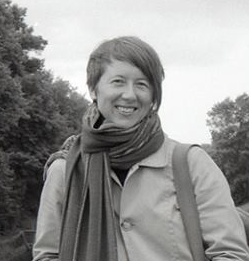Lisa Guenther is National Scholar in Political Philosophy and Critical Prison Studies at Queen’s University, Canada. In her book Solitary Confinement: Social Death and Its Afterlives (2013) she examines the death-in-life experience of solitary confinement in America from the early nineteenth century to today’s supermax prisons. Documenting how solitary confinement undermines prisoners’ sense of identity and their ability to understand the world, Guenther demonstrates the real effects of forcibly isolating a person for weeks, months, or years.
During June and July 2019, the Hidden Persuaders group invited Lisa Guenther to lead a series of events at Birkbeck on the topic of incarceration.These included a one-day symposium, Incarceration: Space, Power and Personhood, a film screening of Mike Dibb’s new film about solitary confinement, Painted with my Hair, workshops in Birkbeck’s Philosophy, Architecture, and History departments, and a keynote lecture on the theme of prison abolition and decolonization.
A podcast of Lisa’s lecture, set alongside images from her talk, is now available here:
No Prisons on Stolen Land: Prison Abolition and Decolonization as Interconnected Struggles
Lisa Guenther, 6.30pm, Monday 1 July 2019
Every prison, jail, and detention center in the United States and Canada is built on Indigenous land. In some cases, title to this land was negotiated through treaties; in other cases, the land remains unceded and unsurrendered. But even if every correctional institution in the US and Canada were abolished tomorrow, this would not dismantle the structures of settler colonial power that are interwoven with the criminal legal system and settler society. In this lecture, Lisa Guenther traces the roots of both carceral and colonial power to a conception of propertied personhood, developed by John Locke in the 17th century. She argues that a new understanding of personhood as relational and responsible is needed for effective movements towards prison abolition and decolonization. Indigenous scholars such as Leanne Simpson and Glen Coulthard, as well as prison abolitionists such as Angela Davis and Alexis Pauline Gumbs, point the way to a radical transformation not only of political philosophy, but also of social life.
With support from The Pathologies of Solitude project at Queen Mary.



